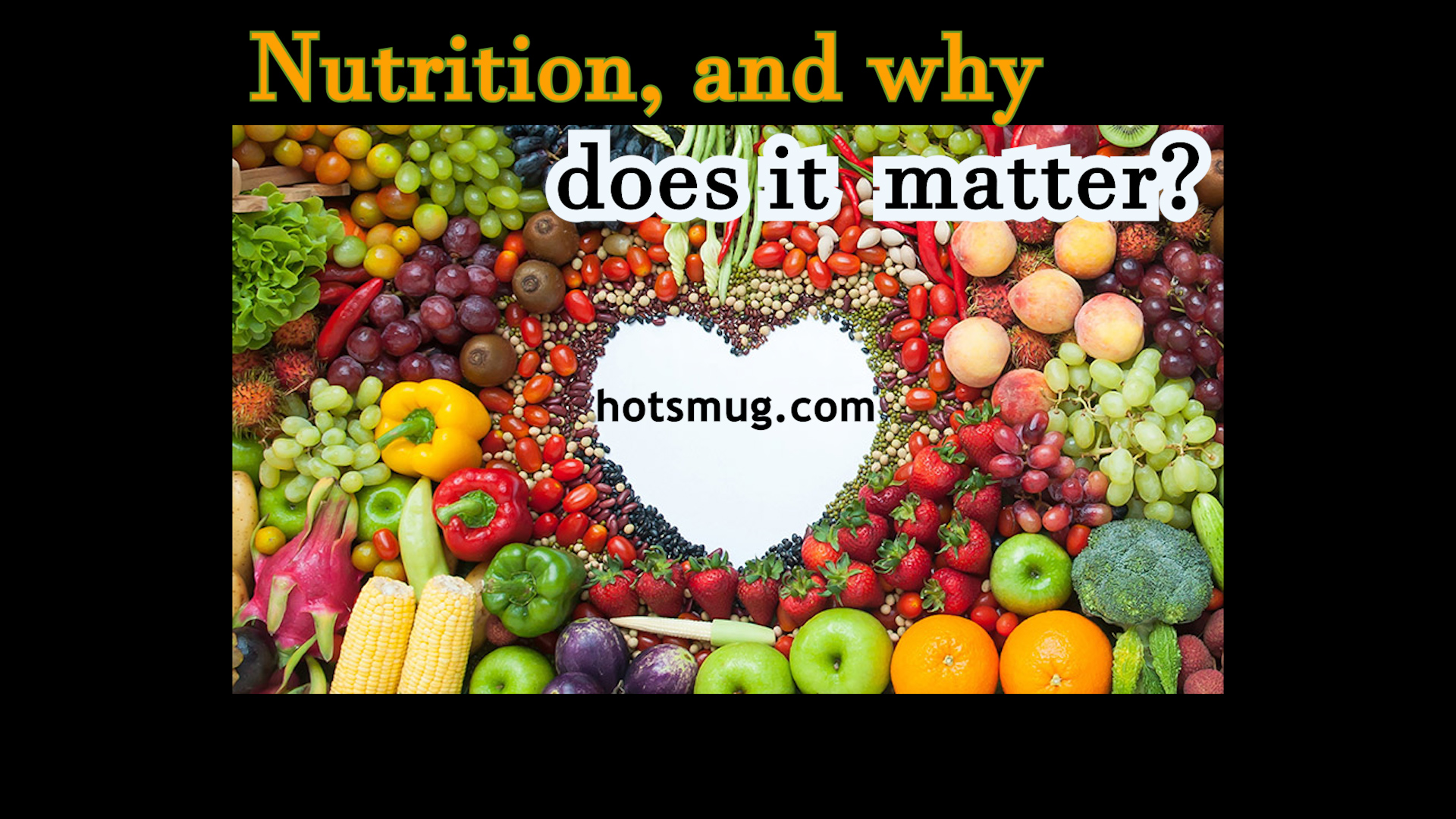What is Nutrition?
Nutrition is the study of how food and drink affects our bodies with special regard to the essential nutrients necessary to support human health. It looks at the physiological and biochemical processes involved in nourishment and how substances in food provide energy or are converted into body tissues. These nutrients, which are the source of energy for our bodies, are classed as: carbohydrates, fats, fibre, minerals, proteins, vitamins and water. Good nutrition means obtaining the right amount of nutrients from healthy foods in the right combinations. An important part of the study of nutrition is looking at diseases that can result from malnutrition and the role that food plays in the development of chronic disease.
6 Major Categories of Nutrients
- Carbohydrates
- Fats
- Minerals
- Proteins
- Vitamins
- Water
Why is good nutrition important?
To put it simply, without the proper nutrition, your body is unable to function at its best.
Good nutrition allows you to fuel your body and nourish it for growth and repair — something that you need to do every day, especially if you are training regularly.
When you’re eating a balanced range of vitamins and minerals, as well as getting plenty of energy from your food, this is good nutrition. Eating foods from all of the food groups is the best way to ensure a balanced, nutritionally rich diet.
These food groups include:
- Grains
- Vegetables and legumes
- Lean meat, seafood, eggs and meat alternatives
- Dairy products and alternatives
- Fruit, and
- Healthy fats.

Your nutritional requirements are unique to your body — especially if you have food sensitivities or intolerances to consider.
Now that you know the answer when someone asks ‘what is nutrition’, I want to help you learn more about some key nutritional terms that I use throughout my blogs. That way, you can follow my healthy recipes and suggestions without getting confused.
Why Nutrients Matter
Nutrients are important for proper health and development. The following are a variety of the key reasons that the nutrients in your food matter.
They Provide Energy
Carbohydrates, fats, and proteins provide the energy your body needs to carry out all the biochemical reactions that occur throughout the day (and night).1 The energy is measured in calories (kilocalories, technically, but we usually just call them calories). Gram for gram, fat has more calories than either carbohydrates or protein; one gram fat has nine calories, and the other two have four calories per gram.
They’re Needed for Body Structures
Fats, proteins, and minerals are used as raw materials to build and maintain tissues, organs and other structures such as bones and teeth. Carbohydrates aren’t on this list, but your body can take any extra carbohydrates and convert them into fat, which can be stored in adipose tissue. We can also store carbohydrates as glycogen in our muscle and liver and use them as energy. It is only when these tanks are full that we store carbohydrates as fat.
They Regulate Body Functions
Nutrients help regulate body functions. All six classes are involved in regulating various body functions such as sweating, temperature, metabolism, blood pressure, thyroid function, along with many others. When all of the different functions are in balance, your body is said to be in homeostasis.
What is the Impact of Nutrition on Your Health?
Millions of people are suffering from different forms of malnutrition. According to WHO, currently, in India, 1.9 billion adults are overweight or obese while 462 million are underweight. Among children, 52 million under-fives are suffering from wasting, where they have a low weight for height.
As mentioned earlier, nutrition is a critical part of our health and development. Malnutrition, in any form, poses threats to human health. Today the world faces a double burden of malnutrition that includes both undernutrition and overweight, especially in low- and middle-income countries.
Better nutrition is directly related to improved maternal, infant, and child health, better immune systems, safer pregnancy and childbirth, reduced risks of non-communicable diseases (like diabetes and cardiovascular diseases), and enhanced longevity. Healthier children learn better. Individuals who get adequate nutrition are usually more productive.
Thus, the link between good nutrition and healthy weight, lowered risk of chronic diseases, and overall health is too important to ignore. By taking steps to eat healthy, you’ll be ensuring that you have access the nutrients your body needs to stay active, healthy, and strong. As with physical activities, making small changes in your diet can go a long way, and it is easier than you think!
How to measure nutritional status
Nutritional status is a key indicator of health. It’s your body’s physiological state based on the number and quality of nutrients that you can absorb, and defines whether you’re healthy, malnourished, or underweight.
Here are the most common and effective ways to measure nutritional status, as part of a nutritional assessment.
Nutrition testing
This tests the levels of macronutrients and micronutrients in your body, using blood samples. These tests are broken down by vitamins and minerals—vitamin tests, mineral tests, calcium tests, etc.
Nutrition response testing is an alternative method that involves muscle testing, to identify weakness or dysfunction.
Dietary methods
Assessing a person’s diet is another useful way to measure their nutritional status. By tallying up what has been eaten over a 24-hour period, you can get a good idea of whether they’re eating the right foods, and in the right amounts.
A dietary assessment can include number of meals per day, salt intake, changes in appetite, and alcohol and caffeine consumption.
Anthropometry
Anthropometry is the study of measuring the human body. The human species has measurements that fall within a certain range, and when these ranges are breached (e.g. a large belly), it can indicate poor nutritional status.
Anthropometry includes measuring a person’s height, length, weight, body mass index (BMI), head circumference, skin fold thickness, and arm circumference, which are usually taken from one date to another.
Biochemical methods
As with our body measurements, chemicals inside our bodies must also sit within a particular range to keep us healthy. We can measure certain proteins, cells, and other chemicals to identify nutritional status.
Clinical methods
Clinical assessment is the physical examination of a patient, to identify problems. Nutritional deficiencies show on the body in a number of ways, including muscle wasting, pale skin, fatigue, swelling, ulcers, bleeding gums, and more. By identifying these issues, we can diagnose issues and understand how they’re best treated.
What is the best diet?
If you’d prefer to follow a particular diet, these have shown to be the best for your health:
- Low-carb, whole food diet—this diet helps you lose weight, lower your risk of disease, and be healthier all-round. As the name suggests, It focuses on eating fewer carbs and more whole foods.
- Mediterranean diet—this diet has proven to be incredibly healthy, particularly for our heart. It includes plenty of vegetables, fruits, fish, poultry, whole grains, legumes, and extra virgin olive oil.
- DASH diet—this diet was initially created to reduce the risk of heart disease. It includes plenty of vegetables, fruit, lean protein, and also restricts red meat, salt, added sugars, and fat.




